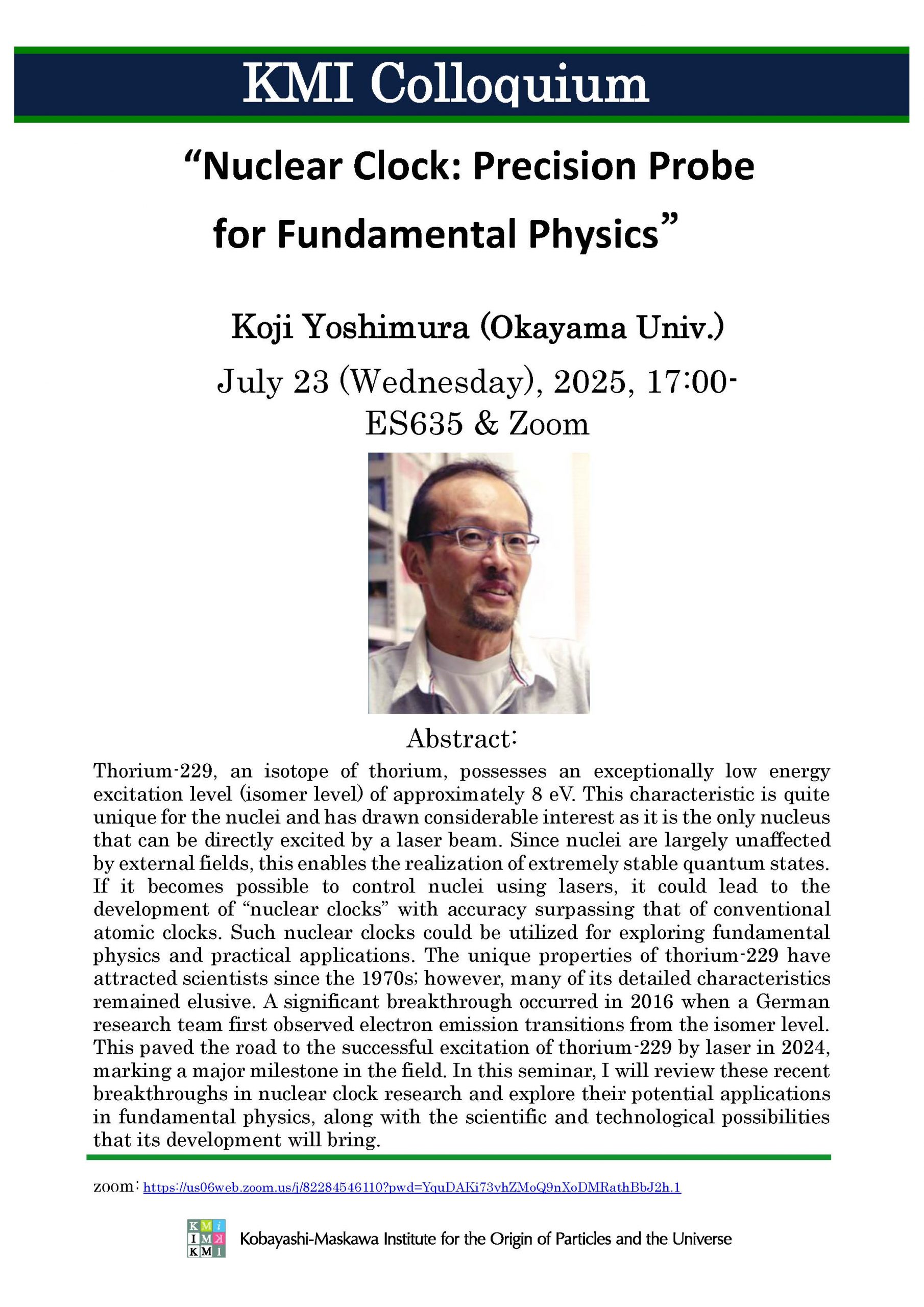Nuclear Clock: Precision Probe for Fundamental Physics
“KMI Colloquium” 23rd Jun. (Wed) 17:00 – 18:00
Speaker: Koji Yoshimura (Okayama Univ.)
Title: Nuclear Clock: Precision Probe for Fundamental Physics
Place: ES635 & ZOOM
Abstract: Thorium-229, an isotope of thorium, possesses an exceptionally low energy excitation level (isomer level) of approximately 8 eV. This characteristic is quite unique for the nuclei and has drawn considerable interest as it is the only nucleus that can be directly excited by a laser beam. Since nuclei are largely unaffected by external fields, this enables the realization of extremely stable quantum states. If it becomes possible to control nuclei using lasers, it could lead to the development of “nuclear clocks” with accuracy surpassing that of conventional atomic clocks. Such nuclear clocks could be utilized for exploring fundamental physics and practical applications. The unique properties of thorium-229 have attracted scientists since the 1970s; however, many of its detailed characteristics remained elusive. A significant breakthrough occurred in 2016 when a German research team first observed electron emission transitions from the isomer level. This paved the road to the successful excitation of thorium-229 by laser in 2024, marking a major milestone in the field. In this seminar, I will review these recent breakthroughs in nuclear clock research and explore their potential applications in fundamental physics, along with the scientific and technological possibilities that its development will bring.




